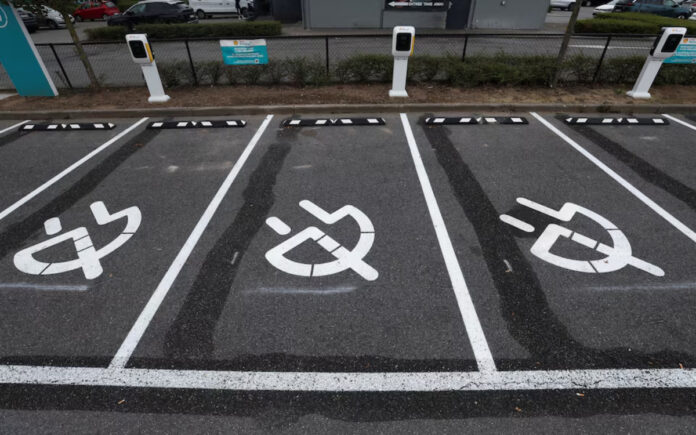Paris: European automakers are adopting a dual strategy of raising petrol car prices and offering discounts on electric vehicles (EVs) to navigate the looming challenge of stricter emissions regulations. The European Union’s new rules, effective January 1, will impose drastically lower carbon dioxide emission caps on vehicles, requiring at least 20% of carmakers’ sales to be EVs to avoid steep penalties.
According to the European Automobile Manufacturers’ Association (ACEA), only 13% of vehicles sold in the region so far this year are electric, underscoring the significant gap carmakers must close to comply with the new targets.
European automakers are raising prices of petrol cars and readying discounts on electric vehicles as they brace for yet another challenge — tougher emissions rules that threaten to further shrink profits across the struggling industry https://t.co/pb23FC9flQ pic.twitter.com/CzxHhxIFd4
— Reuters (@Reuters) December 17, 2024
Challenges for the Auto Industry
Marc Mortureux, director of the French car lobby PFA, emphasized the daunting task ahead: “The gap is really big.” He noted that the automotive sector is grappling with excess capacity, lackluster sales, and intensifying competition from Chinese manufacturers. These pressures have already prompted profit warnings from major players like Volkswagen, Stellantis, and Renault.
Adding to the turmoil, political and economic uncertainties, coupled with declining EV subsidies, are dampening consumer interest in EVs, Mortureux added. Stellantis CEO Carlos Tavares recently resigned, partly due to disagreements over how to address these challenges.
Steering Demand with Pricing Strategies
Carmakers are implementing strategies to meet the emissions targets while avoiding penalties, which ACEA Chairman Luca de Meo estimates could reach €15 billion based on current sales. Volkswagen, Stellantis, and Renault have raised the prices of petrol models by several hundred euros in recent months, aiming to curb demand for higher-emission vehicles and make EVs more appealing.
Stellantis’s Peugeot brand increased prices for all non-electric models in France by up to €500. Similarly, Renault added €300 (1.6%) to the price of its petrol-powered Clio SCE 65 but kept hybrid prices unchanged.
“Carmakers have started with their pricing strategy to steer demand towards battery EVs in order to reach the CO2 targets and avoid potential fines,” said Beatrix Keim of the Center for Automotive Research.
Risks of Price Adjustments
However, these strategies may have unintended consequences. A source close to a major European automaker warned that raising petrol car prices could lead to production cuts, negatively impacting the supply chain and suppliers.
“Increasing the price of thermal engine cars means cutting production (…) and all the value chain and suppliers will suffer from this,” the source said.
EV Discounts and Alternative Solutions
To further encourage EV sales, automakers are preparing to offer discounts on electric models, a move Denis Schemoul, an auto analyst at S&P Global, described as “an indirect subsidy” funded by higher petrol car prices. For example, Volkswagen has already slashed the price of its ID.3 compact electric car to under €30,000 in Germany.
Also Read | Warren Warns of Musk’s Conflicts of Interest in Trump Administration
Despite these efforts, the financial strain remains significant. In the UK, automakers have warned that EV targets could cost the sector £6 billion this year, including £4 billion in discounts.
“Pooling” emissions—buying credits from companies with higher EV sales—offers a potentially less costly alternative. Japan’s Suzuki recently partnered with Geely-owned Volvo to pool emissions for 2025, significantly reducing Suzuki’s risk of penalties.
Also Read | 1 Million Syrian Refugees Could Head Home by Mid-2025, Says UNHCR
Industry Pushback
Amid mounting costs and challenges, carmakers continue to urge EU lawmakers to reconsider the emissions targets. “At some point, enough is enough,” said Luc Chatel, president of the PFA. “I can’t sell enough electric vehicles and I’m going to be penalized on my thermal vehicles. What do they want me to make, horse-drawn carriages?”



